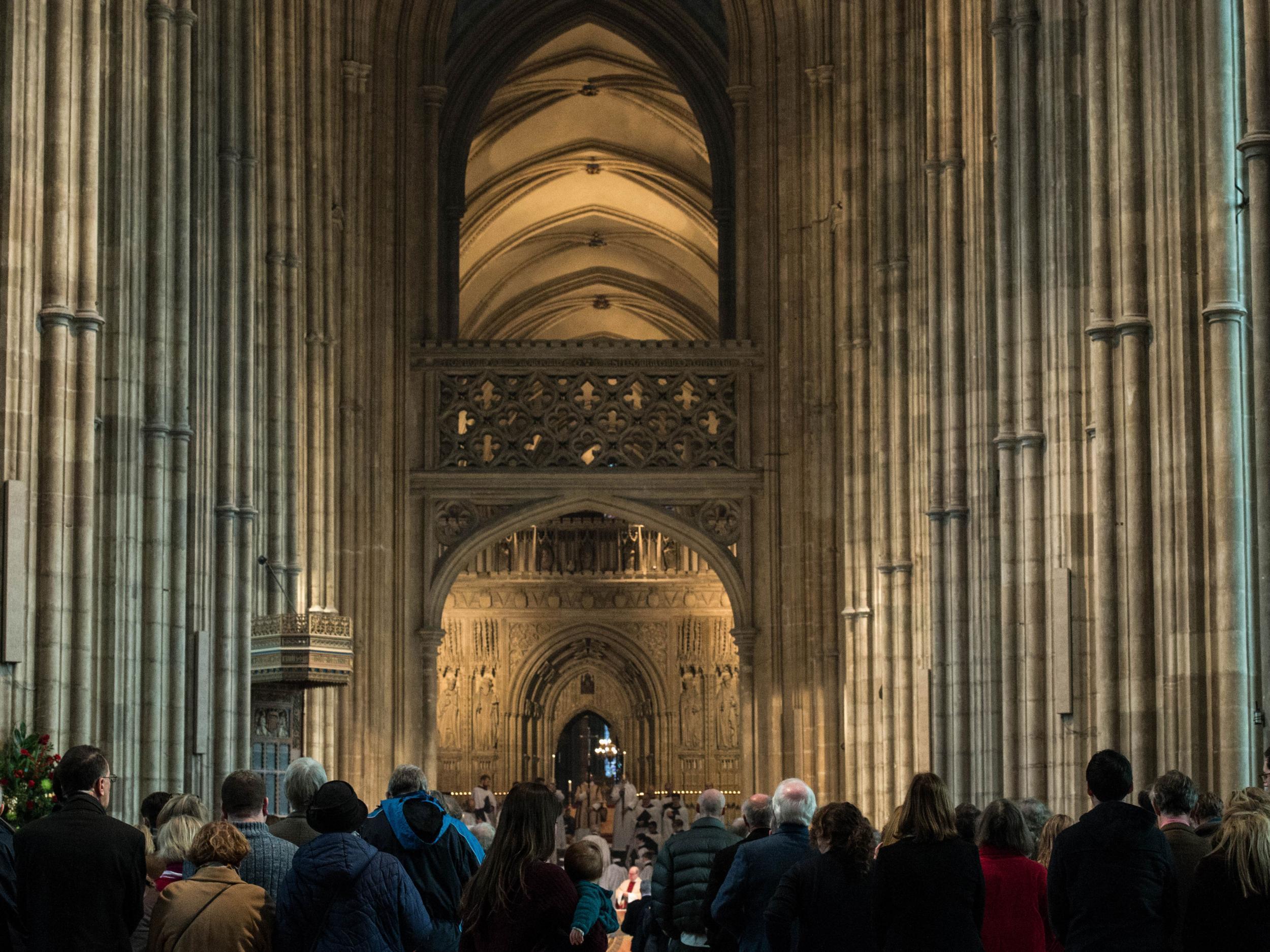While you celebrate Christmas, don't forget the ridicule and aggression to which Christians are so often subjected
For Christians in this country there is a sense of being a target: sometimes for aggression, but primarily for ridicule or simply bemusement by non-believers


Your support helps us to tell the story
From reproductive rights to climate change to Big Tech, The Independent is on the ground when the story is developing. Whether it's investigating the financials of Elon Musk's pro-Trump PAC or producing our latest documentary, 'The A Word', which shines a light on the American women fighting for reproductive rights, we know how important it is to parse out the facts from the messaging.
At such a critical moment in US history, we need reporters on the ground. Your donation allows us to keep sending journalists to speak to both sides of the story.
The Independent is trusted by Americans across the entire political spectrum. And unlike many other quality news outlets, we choose not to lock Americans out of our reporting and analysis with paywalls. We believe quality journalism should be available to everyone, paid for by those who can afford it.
Your support makes all the difference.Ah, Christmas. How’s it been for you?
Presents? Check. Too much food? Check. That warm fuzzy feeling which is excessive wine plus the effects of central heating on constant? Check again.
But what about church? After all, that’s what it’s all about, right?
In recent years the Church of England has reported relatively steady Christmas attendance figures of around 2.5 million across the country – more than three times the average total Sunday congregation. But for the vast majority, the festival has become purely secular. Christians are a minority group in the UK: one with a relatively powerful lobbying voice (not to mention the formal link between Church and state), but for how long?
Recent surveys suggest that persecution of Christians in the past few years has, on a global level, reached unprecedented levels – thanks in large part to the horrors wreaked by Isis in the Middle East. A prayer to Jesus as God’s only begotten son is a dangerous thing in some parts of the world.
Of course, the consequences of Islamist violence are hardly limited to Christians. The religious bigotry of groups such as Isis is as often as not directed at Muslims. And ordinary Muslims receive far more than their fair share of everyday abuse in Western nations, where they are targeted by nationalists and held responsible for acts of terror they have no sympathy for. Other religious groups suffer gravely too.
Indeed, if you look at the world primarily through a prism of moral relativism, Christians seem to have things OK. What’s more, there are plenty of fundamentalists around to give Christianity a bad name – particularly that special brand of biblical literalist which seems to find voice most loudly in the United States.
There are also a ready supply of nasty trolls on social media whose antipathy towards Muslims is accompanied by proclamations that the UK, or America, or Europe are “Christian lands”. The irony of their attitudes being the very antithesis of Christianity’s core values is most probably explained by the fact that most of them barely leave their bedrooms, let alone go to church.
Seeking sympathy for your common or garden Anglican can, in summary, ring a little hollow.
Yet it is undoubtedly the case that for a sizeable number of Christians in this country there is a sense of being a target: sometimes for aggression, but primarily for ridicule or simply bemusement by non-believers.
Perhaps that is partially a consequence of a Richard Dawkins-style conviction that religion – and thus the religious – is at the root of the world’s ills; both as a source of violence and as a barrier to rational progressiveness.
There is though something less explicitly hostile at play, which can be summarised as a general perception that faith and intelligence are mutually exclusive.
Some time ago a friend who I’d known for several years suddenly exclaimed that she couldn’t understand why an apparently bright person could possibly believe in God. Another friend perennially became angry at my faith when he’d had a few drinks.
Recently an acquaintance mentioned to my wife that she was thinking about going to the local church in our town in order to secure a place at the Church of England infant school – “just like your husband did”. The paradox of faith is that it can be met with such strident disbelief.
The Prime Minister referred in her Christmas message to taking pride in Britain’s Christian heritage, which is a bold thing for a politician. Indeed, her own regular Sunday church visits are well-documented.
However, it is hard to avoid the feeling that the ever-present references to the PM as “the daughter of a vicar” are accompanied by a slightly sneery tone – and I say that as no fan of Theresa May or her politics. That seems to me symptomatic of a widespread notion that regards church-going as, at best, rather quaint. I’m not sure all the James Norton-style priests in the world would change that.
Of course, even if any of this is correct (and indeed unfair), Christians in this country ought by rights simply to turn the other cheek. Maybe the gradual dwindling of a once-dominant western faith is no great shakes in any case. After all, rampant materialism and individualistic capitalism seem to be serving us pretty well….
Nonetheless, the derision which is regularly displayed towards faithful people of whatever religion is no less malevolent than the intolerance of believers for any who do not share their particular creed.
Moreover, if increasingly few people believe in God, why should we continue with the pretence of celebrating the birth of Jesus? We might just as well be back in the office.
Happy Christmas!
Join our commenting forum
Join thought-provoking conversations, follow other Independent readers and see their replies
Comments